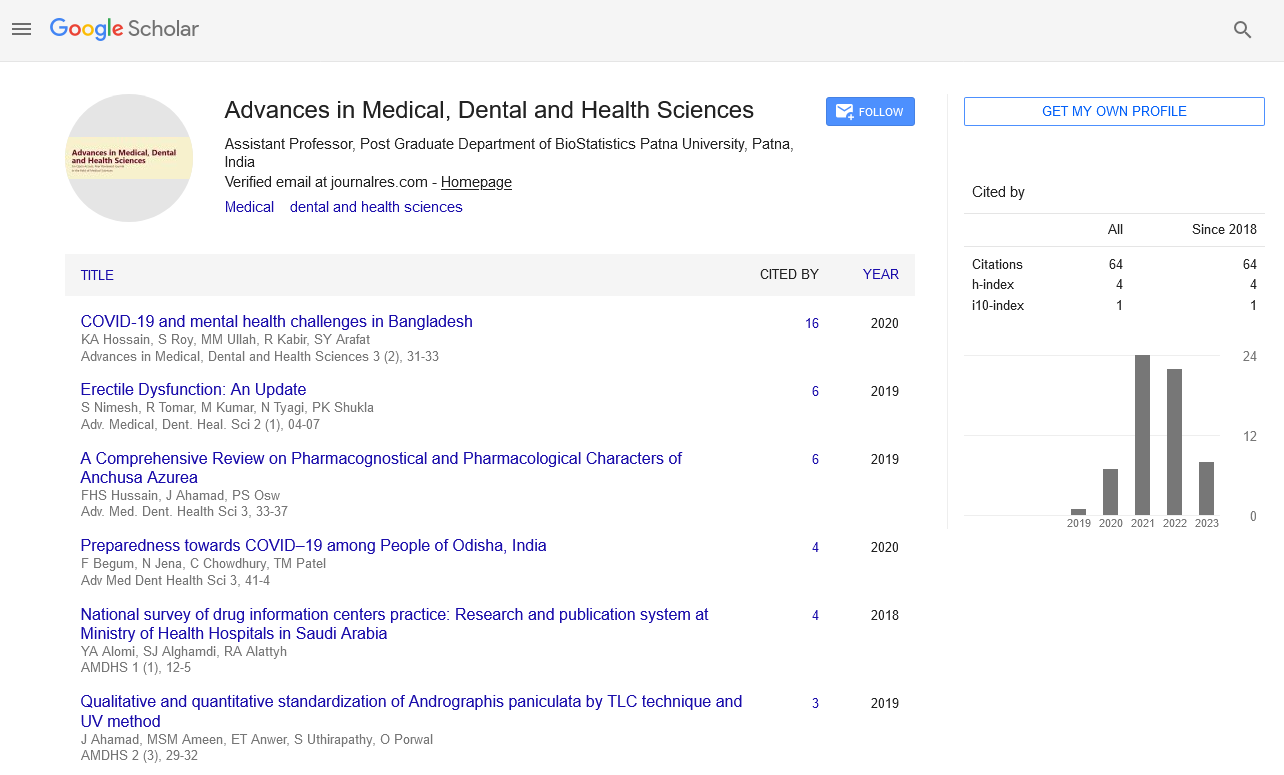Abstract
Author(s): Farzana Begum, Nabanita Jena, Chinmaya Choudhury, and Trupti Mayee Patel
COVID-19 is a highly contagious respiratory tract infection. The morbidity may range from asymptomatic mild to severe life-threatening. It may transmit through droplets or contaminated surfaces. In an effort to mitigate the outbreak of COVID-19, most of the countries have imposed drastic lockdown. The effectiveness of these mitigation measures is highly dependent on cooperation and compliance of the public. The knowledge, attitudes and practices of people toward the disease, play an integral role in determining a society’s readiness to accept the prevention strategies from health authorities. The aim of the current study was to explore the knowledge, attitudes and practices toward COVID-19 among the people of Odisha, a state located in the east of India. A cross-sectional online survey of 1,086 people residing in Odisha was conducted between 30th June 2020 to 04th August 2020. The survey tool consisted of demographic characteristics, 12 items on knowledge, 6 on attitudes and 4 on practices, modified from a previously published questionnaire on COVID-19. Descriptive statistics, ANOVA and chi-square tests were conducted. The average knowledge score for participants was 9.9 and there was age-wise significant difference observed in knowledge scores and knowledge had a significant association with attitude of the participants. However, irrespective of the demographic profile, knowledge level and attitude, most of the participants (above 80%) were following appropriate practices to protect themselves from getting infection. The results highlight the importance of consistent health education programs to improve the levels of knowledge, attitudes and practices
